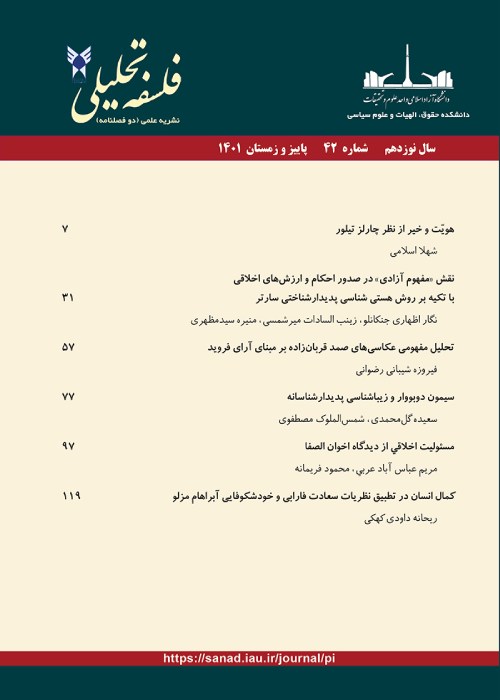The Relationship with the Other for Gabriel Marcel Reflecting in "Dot the I"
and playwright. There is a close relationship between his philosophical and artistic works. It can even be said that reading his dramas provides a ground for understanding his philosophical concepts. One of the favorite philosophical themes for Marcel is “man” and his relationship with the other. Man is a unique subject, not an isolated one; he is not an Island. Through the history of philosophy, this man, the subject, and his relation to others has been an object of philosophical inquiries. From the cradle to the grave, there has been no time man has been absolutely alone. So his being is a being–through others and his existence implies the existence of others. This has been the gospel of contemporary existentialists, including Gabriel Marcel whose existentialism is basically theistic. In his view, the individual becomes aware of himself through social circumstances. Marcel developed the I-Thou relationship, which became an attempt to restore the fragmented and fallen dignity of the interpersonal relationship. Moreover, Marcel reflected upon certain experiences metaphysically implied in the I-Thou relationship. These form the foundations or basis of any authentic mode of interpersonal relationship. However, my relationship with others is determined by the type of relationship that exists between us. In other words, I, as a human being, can exist or act in one of the two ways: I can exist and relate lovingly and authentically with others, which Marcel calls the I-Thou relationship; or I can relate inauthentically to others -as I would relate to any object, tool, or instrument- which is the I–it (or he or she) relationship. Marcel's plays do not provide answers; rather, they do suggest paths for reflection, through which we might discover an authentic response to the challenge of the dramatic situation. The situations we witness in Marcel's plays often show us how relationships can go sour and become inauthentic. The story of the play affects us, because we recognize aspects of ourselves in the characters. What Marcel shows us in his plays (the comedies excepted) is the darker side of interpersonal relationships. There is always room for hope, but hope does not take away the suffering and pain people inflict on themselves and others. In his plays, Marcel shows great respect for what he calls human dignity. He does not judge, but simply shows us how people are, and, consequently, how we ourselves could be as well. Watching or reading a Marcel’s play makes us feel slightly uncomfortable. What we see or read confronts us with ourselves and forces us to think about issues that have to do with relationships. In this paper, the way this issue has reflected in his drama, Dot the I, has been investigated
- حق عضویت دریافتی صرف حمایت از نشریات عضو و نگهداری، تکمیل و توسعه مگیران میشود.
- پرداخت حق اشتراک و دانلود مقالات اجازه بازنشر آن در سایر رسانههای چاپی و دیجیتال را به کاربر نمیدهد.


